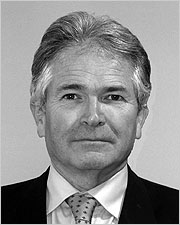Arbitration is a form of dispute resolution in which disputing parties select an independent third party arbitrator to listen to and evaluate the evidence presented by each party and make a final decision about the appropriate resolution.
Arbitration is primarily used to resolve disputes in business deals relating to merger and acquisition, financial services, construction and infrastructure, intellectual property or purchase and sale agreements. It is becoming increasingly popular due to its time and cost effectiveness when compared with litigation.
The arbitration process consists of the following key stages:
- Request for and submission of a dispute to arbitration
- Arbitrator selection
- Scheduling
- Preliminary hearings
- Discovery
- Trial / arbitration preparation
- Final hearing and award
What is a Discovery?
The ‘discovery’ phase in an arbitration is the pre-trial stage during which the disputing parties identify and pull together all of the relevant information, documentation and witnesses they will require to support their case at the final hearing. The discovery process also allows the parties to obtain facts and information from the other party to help support their own case and to prepare for the final hearing. The benefit of which may be that parties do not encounter nasty surprises on the day of the final award.
During the ‘discovery’ phase of arbitration proceedings, the arbitrator will examine the unique facts and circumstances of the case, collect relevant documents and information and look at any requests for further documentation.
Discovery Disputes
In recent years the size and scope of arbitration cases has dramatically increased, meaning that the discovery stage can be a lengthy one if substantial document requests are made. It’s important to keep the process as efficient as possible given that one of the merits of arbitration versus formal court proceedings is its time and cost effectiveness. An arbitrator must always consider whether the financial burden of a broad discovery program will outweigh the benefit that it brings to resolving the dispute.
Coming together is a beginning; keeping together is progress; working together is success”
Henry Ford
In hotly contested arbitrations it is not uncommon for conflicts to arise and often as early as the discovery phase, as parties challenge documentation or object to document requests from the other party. Disputes at this stage can inevitably hold up proceedings and the arbitrator might decide to therefore establish a set of ground rules that helps resolve these discovery disputes so that the arbitration does not get delayed.
Solutions
The arbitrator may do this by ensuring that any potential disputes that arise are discussed up front before the discovery kicks off, and establishing guidelines and timings for document requests and relating objections. As arbitration is contractual in nature, the parties in arbitration are free to contract as to the scope of discovery before the process itself commences. For example, a clause may be inserted into an arbitration agreement such as the following:
‘Parties shall have all rights of discovery as are provided under [insert whatever rules or part thereof that are deemed appropriate].’
This will help by creating guidelines to which both parties must abide, reducing the likelihood of conflict from the offset. However, if such an agreement is not put in place in advance, it may be helpful for an adjudicator to consider these further recommendations aiming to expedite the discovery process:
- Document requests should avoid broad phraseology such as: ‘all documents directly or indirectly related to’.
- In cases involving a three-arbitrator panel, any discovery disputes should be decided by one of the three. This approach avoids the time and expense of having three arbitrators come to an agreement on every document request.
- Objections to document requests should be exchanged on an agreed date after which an arbitrator may decide to organise a meet-and-confer effort by counsel that may allow disputes to be settled up front, or in other cases the arbitrator may decide to resolve disputes quickly via email or teleconference.
- If objections are not resolved at the ‘meet and confer’ shortly after that parties may submit a four to five page letter outlining their discovery differences and explaining why their position is correct. The arbitrator or tribunal should then respond within a determined period with a decision as to the outcome of the discovery dispute.
In each case, the arbitrator’s personal experience and the specifics of the case and discovery dispute will dictate what approach he or she takes to resolution. It is important that arbitrators and disputing parties collaborate to ensure the discovery process is an efficient one that allows the arbitration proceedings to go ahead as quickly and effectively as possible, but also ensuring the process remains a fair one. If participants remain on the same page, then effective and efficient arbitration discovery is a realistic goal in modern arbitration proceedings.
For directory of articles on arbitration services please click here.
Expert Evidence is a professional firm concentrating on the four main areas of dispute resolution; acting as expert witnesses in financial litigation, mediation, arbitration and adjudication. The firm has a civil, criminal and international practice and has advised in many recent cases. Areas of specialisation include banking, lending, regulation, investment, and tax.
Ask a question about arbitration services. We are here to help!
Disclaimer – Please confirm any of the above views with your solicitor. Expert Evidence takes no responsibility or provides any guarantee that the views above are correct for your particular case or jurisdiction.


















